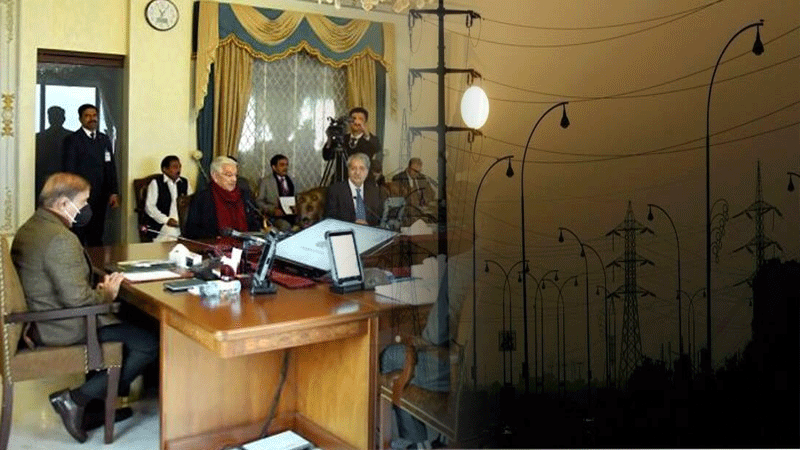Prime minister directed that the factors causing power outages be identified and that steps be taken to ensure that such a situation does not occur again in the future.

The federal cabinet has directed the development of a comprehensive strategy to prevent significant disruptions in the country’s electricity system in the future and to permanently address the factors that cause power outages while providing people with electricity, water, gas, and other services.
A first-of-its-kind nationwide public awareness campaign has been approved to instil the habit of resource conservation and its importance, popularise energy-saving habits, and incorporate global practises into the curriculum.
Saving electricity, gas, and water in public, private, domestic, and commercial settings will result in a significant reduction in the import bill for petroleum products, which has more than doubled in the last seven years.
A shift in national attitudes toward energy conservation will save billions of rupees in foreign exchange and significantly reduce the public bill by 30 to 40 percent at the individual level.
The cabinet was pleased with the briefing provided by the Ministry of Information and Broadcasting and directed that the nationwide campaign be launched as soon as possible.
The prime minister expressed his deep anguish over the country’s power outages , saying that the sufferings and difficulties endured by the people and business community are intolerable. The prime minister also directed that the factors causing power outages be identified and that steps be taken to ensure that such a situation does not occur again in the future.
The prime minister gave strict orders that those responsible for causing hardship and trouble to the public and business community be identified.
The cabinet was informed that the prime minister’s high-level committee had begun an investigation into the power outages. The committee will go over all of the facts and submit a detailed report.
According to the initial report, this incident occurred at 7:34 a.m. due to a technical fault in the North-South transmission line, a sudden fluctuation in the electric current, and a frequency disruption, according to the minister of energy. Following that, the automatic protection system shut down the power transmission system (Trip).
He stated that following the prime minister’s immediate notice and instructions, all resources were used to restore power across the country, with power restored in all major cities by 10 p.m. the same day. By 5 a.m. today (Tuesday), all 1112 grid stations in the country had been restored, and power was restored to consumers.
On the prime minister’s special instructions, the gas-fired power plants were immediately commissioned, and electricity production began to compensate for the power outage.
Nuclear and coal-fired power plants, on the other hand, require one to two days to restart according to standard operating procedures (SOPs); all other power plants continue to generate uninterrupted power as usual.
Minister of Information and Broadcasting, briefed the Cabinet on the National Awareness and Communication Strategy for Energy Conservation. A comprehensive and long-term campaign is currently underway in the country as part of this.
Prior to the launch of this campaign, the Ministry of Information and Broadcasting conducted a comprehensive survey for the first time in the country’s history, in which opinions on public awareness of energy-saving measures were solicited.
The ministry developed a long-term awareness campaign based on the survey results and trends, with the goal of changing people’s habits, lifestyles, thinking, and attitudes. Print, electronic, outdoor, social media, and public opinion makers and experts will be consulted in this regard.
This campaign is being planned with the trends, interests, and media consumption of people from every sector, class, and age group in mind. It will be run in collaboration with both public and private institutions.
The Cabinet was pleased with the briefing provided by the Ministry of Information and Broadcasting, and it gave its approval and directed that the nationwide campaign be launched as soon as possible. In addition, the prime minister directed that all other ministries fully support the Ministry of Information in this campaign.
The meeting was informed that the import bill is increasing due to the continuous increase in the import of petroleum products. The import bill for petroleum products was 18 percent in 2017, and it is expected to rise to 29 percent in 2022. Saving energy is critical for saving Pakistan’s economy and valuable foreign exchange. A shift in attitudes could help Pakistan recover from its economic crisis.
The prime minister directed that the supervisory governments in the provinces of Khyber-Pakhtunkhwa and Punjab be taken into confidence regarding the energy-saving projects, so that various energy-saving measures are strictly implemented across the country with the cooperation of all provincial governments.
